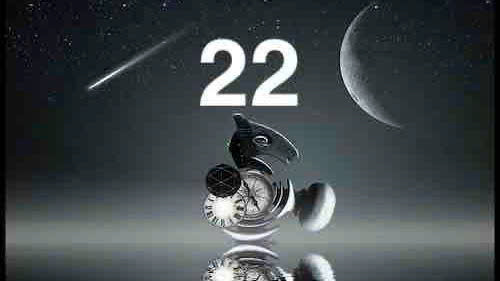henniedo03
Member
Basic features of numerology
Origin of numerology
Numerology, also known as numerology, is a system of analyzing and explaining the meaning of numbers in life. The origins of numerology can be traced back to many different cultures, but there are mainly three main origins:

1. Babylonian civilization: Numerology can be traced back to about 4000 years ago in Babylon, where people used numbers to predict the future and explain events.
2. Ancient greece: The philosopher Pythagoras (570-495 BC) was one of the first to systematize numerology. He believed that everything in the universe could be explained through numbers, and each number had its own meaning.
3. Indian culture: Numerology is also related to Indian philosophy and religion, especially in texts such as the Vedas. Ancient Indians developed complex numerology systems to understand the universe and human beings.
Numerology has evolved over the centuries and is now applied in many fields such as psychology, astrology and personal development. Each number from 1 to 9 and the master numbers (11, 22, 33) has its own meanings and characteristics, which are believed to influence each person's personality and destiny.
The core of numerology
The core of numerology lies in understanding and deciphering the meaning of numbers, thereby helping people better understand themselves, their relationships and their lives. Each number from 1 to 9, along with the master numbers (11, 22, 33), has its own meanings. They are believed to reflect the personality traits, tendencies and even the destiny of the individual.
Numerology believes that numbers are not just symbols but also have a deep connection with the universe. Through numbers, people can identify the energies and frequencies that the universe sends. Numerology often uses a person's name and date of birth to calculate and analyze. The numbers drawn from this data are considered the key to better understanding that person.
One of the goals of numerology is to help individuals realize their potential and weaknesses. Through this, people can develop themselves, improve relationships and make better decisions in life. Numerology is also used to predict future trends, helping people have an overview and adjust their lives accordingly.

How has numerology approached the world?
Numerology has reached the world through many different forms and avenues, including:
1. Cultural traditions: Numerology has its roots in many cultures such as Babylon, Greece, and India. These numerology systems were passed down through ancient texts and became part of cultural knowledge.
2. Philosophy and religion: Many ancient philosophies, such as that of Pythagoras, incorporated numerology into religion and philosophy, helping to form beliefs and value systems around numbers.
3. Personal development: In the 20th century, numerology began to be widely popularized as a self-development tool, with many books and guides available. This made it part of the spiritual and self-help movement.
4. Internet and media: With the growth of the Internet, numerology has reached a wider audience through websites, blogs, videos, and social media. This makes it easy for users to learn and apply numerology to their lives.
5. Integration with other fields: Numerology has also been combined with astrology, psychology and other analytical systems, creating a more diverse and rich approach to understanding oneself and the world.
Thanks to these paths, numerology has become an indispensable part of self-discovery and the search for meaning in life.
Numerology, also known as numerology, is a system of analyzing and explaining the meaning of numbers in life. The origins of numerology can be traced back to many different cultures, but there are mainly three main origins:
1. Babylonian civilization: Numerology can be traced back to about 4000 years ago in Babylon, where people used numbers to predict the future and explain events.
2. Ancient greece: The philosopher Pythagoras (570-495 BC) was one of the first to systematize numerology. He believed that everything in the universe could be explained through numbers, and each number had its own meaning.
3. Indian culture: Numerology is also related to Indian philosophy and religion, especially in texts such as the Vedas. Ancient Indians developed complex numerology systems to understand the universe and human beings.
Numerology has evolved over the centuries and is now applied in many fields such as psychology, astrology and personal development. Each number from 1 to 9 and the master numbers (11, 22, 33) has its own meanings and characteristics, which are believed to influence each person's personality and destiny.
The core of numerology
The core of numerology lies in understanding and deciphering the meaning of numbers, thereby helping people better understand themselves, their relationships and their lives. Each number from 1 to 9, along with the master numbers (11, 22, 33), has its own meanings. They are believed to reflect the personality traits, tendencies and even the destiny of the individual.
Numerology believes that numbers are not just symbols but also have a deep connection with the universe. Through numbers, people can identify the energies and frequencies that the universe sends. Numerology often uses a person's name and date of birth to calculate and analyze. The numbers drawn from this data are considered the key to better understanding that person.
One of the goals of numerology is to help individuals realize their potential and weaknesses. Through this, people can develop themselves, improve relationships and make better decisions in life. Numerology is also used to predict future trends, helping people have an overview and adjust their lives accordingly.
How has numerology approached the world?
Numerology has reached the world through many different forms and avenues, including:
1. Cultural traditions: Numerology has its roots in many cultures such as Babylon, Greece, and India. These numerology systems were passed down through ancient texts and became part of cultural knowledge.
2. Philosophy and religion: Many ancient philosophies, such as that of Pythagoras, incorporated numerology into religion and philosophy, helping to form beliefs and value systems around numbers.
3. Personal development: In the 20th century, numerology began to be widely popularized as a self-development tool, with many books and guides available. This made it part of the spiritual and self-help movement.
4. Internet and media: With the growth of the Internet, numerology has reached a wider audience through websites, blogs, videos, and social media. This makes it easy for users to learn and apply numerology to their lives.
5. Integration with other fields: Numerology has also been combined with astrology, psychology and other analytical systems, creating a more diverse and rich approach to understanding oneself and the world.
Thanks to these paths, numerology has become an indispensable part of self-discovery and the search for meaning in life.

